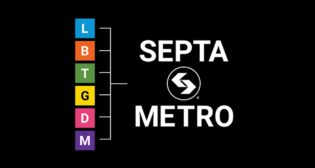
Hitachi Rail USA opens Miami assembly plant
Written by KeithHitachi Rail USA on March 17, 2016 officially opened its new 140,400-square-foot rail vehicle assembly plant in Medley, Fla., when the Mayor of Miami-Dade County, Carlos Gimenez, inaugurated the facility with the unveiling of a full-size mockup of a new railcar for Miami Metrorail.
The plant, which is Hitachi Rail’s first in the U.S., will assemble 136 metro cars for Miami, including 272 powered trucks, under a $313 million contract originally awarded to AnsaldoBreda by the Miami-Dade County Commission in November 2012. Hitachi Ltd. acquired all of AnsaldoBreda from Finmeccanica except for certain residual contracts, plus the 40% stake Finmeccanica held in Ansaldo STS. Ansaldo STS USA (the former Union Switch & Signal) was part of the acquisition.
The first Miami vehicles are scheduled to enter service at the end of 2017. Production is due to be completed in the first half of 2019, about two years behind AnsaldoBreda’s original timeline.
The opening of the plant is expected to create around 100 new jobs in Miami-Dade County.
The Metrorail contract has been fraught with controversy. The Miami-Dade County Commission chose AnsaldoBreda as preferred bidder for the contract in early 2011, but the decision was the subject of a legal challenge in March 2011 by CAF USA, which filed a lawsuit claiming the county had breached federal procurement law by favoring AnsaldoBreda because it would assemble the vehicles locally. The Federal Transit Administration ruled in November 2011 that county officials had violated federal rules in selectig AnsaldoBreda. A court subsequently ruled against CAF, but CAF’s complaint was upheld by the FTA and the procurement process was restarted, this time without attributing value to local assembly. AnsaldoBreda won the contract in November 2012.
AnsaldoBreda, before being acquired by Hitachi, had run into serious problems, as International Railway Journal’s Kevin Smith and Marco Chiandoni reported in April 2014:
The reputation of Italian rolling stock manufacturer AnsaldoBreda has taken a battering in the past year following the fiasco with the V250 high-speed trains supplied to Fyra, a joint high-speed venture between Netherlands Railways (NS) and Belgian National Railways (SNCB).
“The food may be good, but don’t buy trains from Italy” is the damning verdict spray-painted to the fascia of one V250 high-speed train driving trailer which, like the rest of the fleet, now lies desolate at Amsterdam Watergraafsmeer depot.
The depot is where the trains have spent much of their short but eventful existence, which has been marred by certification issues and problems during testing that preceded the delayed delivery of the first trains in 2009.
Following the failure of the trains while in service in early 2013 and their subsequent withdrawal, an agreement was reached on March 17 to return the nine trains delivered to NS to Italy and for AnsaldoBreda to repay the operator 125 million Euros. This brought legal proceedings with NS to an end, although it remains in dispute with SNCB, which ordered three V250s but cancelled its contract last May . The manufacturer encountered similar difficulties with the delivery of IC2 and IC4 DMUS to Danish State Railways (DSB), with these sets finally entering service in autumn 2013, more than 13 years after the order was initially placed, although no additional problems have been reported.
While AnsaldoBreda has had some successes in securing orders for driverless metro trains from Hawaii and Copenhagen, domestic success in Milan and Brescia, and signing a licensing agreement in China, in recent years, the company’s financial performance has suffered. This led to the owner of the company, Finmeccanica, which itself is 30.2%-owned by Italy’s Ministry of Economy and Finance, to explore a sale.
Rumors of a potential international takeover of the group have circulated since 2012, and Finmeccanica CEO Alessandro Pansa announced publicly that the company was available for sale in 2013.
However, delays to the offload have led credit agencies to downgrade AnsaldoBreda to junk, with the company’s heavy debt burden appearing to be the major obstacle to any sale. AnsaldoBreda reported a loss of 300 million Euros in 2012, which caused Finmeccanica to miss its core earnings target for the year, with the company only making a profit following the sale of its Ansaldo Energia division.
Finmeccanica subsequently decided to group the sale with Ansaldo STS, which is profitable, in order to attract buyers for a sole transport unit as it refocused its efforts on aerospace and defense. Establishing a “bad company,” which would be held by Finmeccanica to the point where deals with NS and SNCB are concluded, is considered a solution to the problem of attracting the right bidder.
“We believe that it is necessary to act firmly and promptly to minimise the absorption of cash by AnsaldoBreda by the group,” Pansa said in November 2013.
Despite the obvious political implications, reports in the Italian media in late February seemed to hint that Finmeccanica was getting closer to the deal it desires.
Chinese suppliers CNR and Insigma, with whom AnsaldoBreda and Ansaldo STS have respective technology sharing agreements in China, are the latest companies to submit a letter of intent to Finmeccanica, joining General Electric (GE) as the apparent frontrunners to acquire the company. Mitsubishi Electric, Thales and Hitachi have all been linked with bids in the past.



